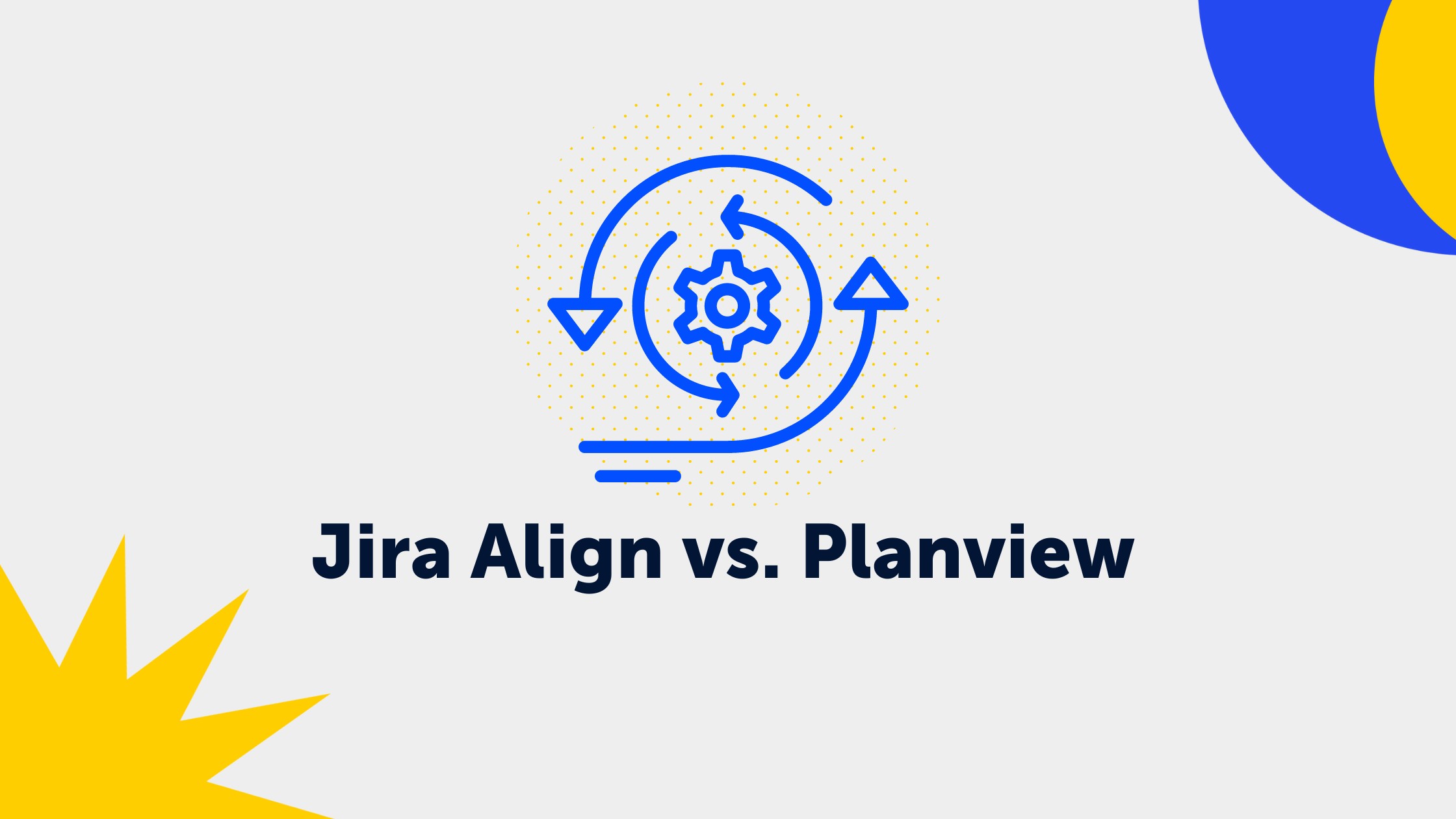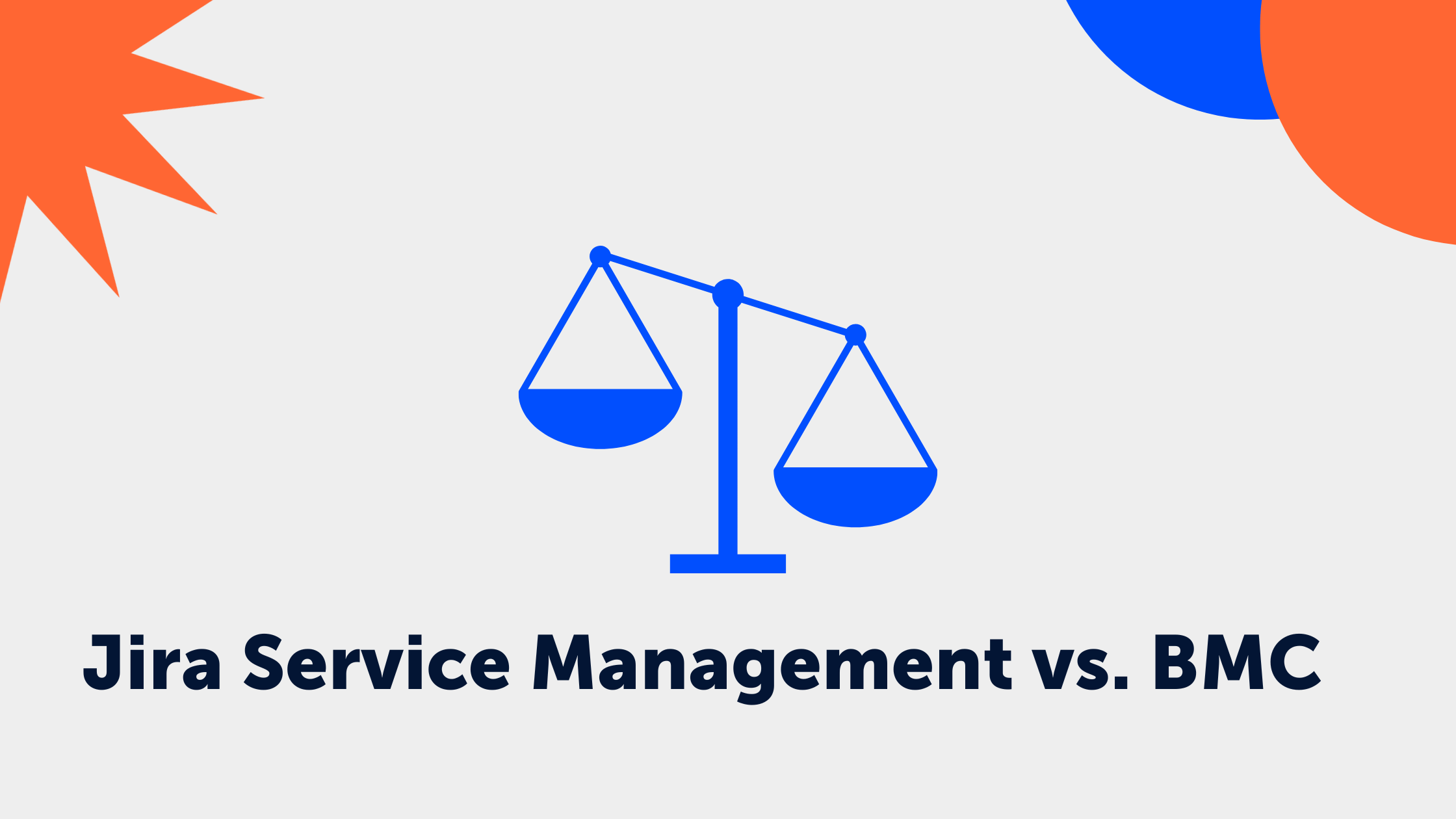3 min read
Jira Service Management vs. ServiceNow: Our Comparison
.jpeg) Stephanie Gaye
:
May 21, 2024 2:00:00 PM
Stephanie Gaye
:
May 21, 2024 2:00:00 PM
IT service management tools have become instrumental in managing service tickets, customer requests, and various other technological requirements. Prominent among such platforms are Jira Service Management and ServiceNow.
In this blog post, we will be comparing these two tools, their defining features, and the differences that you should consider when making a choice for your organization.
What is Jira Service Management?
Jira Service Management, formerly known as Jira Service Desk, is a product of Atlassian and is widely recognized for its collaboration and project tracking for software teams. Some key features that have made it a favourite among many organizations include:
-
Deep Integration with Other Atlassian Products: The ability for Jira Service Management to easily integrate with other Atlassian products like Jira Software and Confluence enables teams to manage work and collaborate more effectively. The functions of Jira Service Management can be extended with a further 5,000 products from the Atlassian Marketplace.
-
Ease of Use and Configuration: Jira Service Management prides itself on a user-friendly interface that allows for easy configuration and customization. Ready-made templates help you establish teams, equipped with pre-structured workflows and additional tools.
-
Powerful Search Capabilities: The platform provides a fast and easy search mechanism that makes finding tasks, comments, and work items a breeze.
-
Scalability: Jira Service Management is scalable and therefore a suitable solution for both small and large organizations.
What is ServiceNow?
On the other hand, ServiceNow, an American software company. It is known for its cloud computing platform that helps companies manage digital workflows. ServiceNow is primarily defined by the following key features:
-
Robust Workflow Capabilities: ServiceNow’s comprehensive platform allows for the creation of complex workflows and infuses AI to automate routine tasks, leading to increased efficiency.
-
Broad Range of Applications: ServiceNow offers a wide variety of applications beyond ITSM, including IT Operations Management (ITOM), IT Business Management (ITBM), and Customer Service Management.
-
ServiceNow Knowledge Base: A feature that encourages self-service by providing users with access to articles and answers they might need.
-
High Customizability: The platform allows a great deal of customization, including creating custom applications from scratch to meet specific business needs.
Feature Comparison - Jira Service Management vs. ServiceNow
Jira Service Management |
ServiceNow |
|
|
Company Focus |
Focuses on providing IT and business services solutions |
Primarily oriented towards enterprise IT services |
|
Deployment Options |
Cloud and on-premise |
|
| Configuration and Customization |
Highly flexible when it comes to configuring and customising to match unique business requirements. |
While it offers extensive configuration at a personalized level, it can be complicated to map complex processes accurately. |
|
Ticketing System |
Offers a reliable ticketing system for issue tracking |
Provides a robust ticketing system to manage incidents |
|
Incident Management |
Provides solid incident management capabilities |
Offers a robust incident management system for handling issues efficiently |
|
Change Management |
Basic functionality for change management |
Extensive features and tools for managing change processes |
|
IT Service Catalogue |
Features a limited IT service catalogue for service requests |
Comprehensive IT service catalogue with a wide range of offerings |
|
Workflow Automation |
Customizable workflows for automating processes |
Powerful but complex workflow automation capabilities to streamline operations |
|
Reporting and Analytics |
Provides standard reporting tools and basic analytics. Reporting is especially strong when integrated with other Atlassian products like Confluence. |
Offers advanced reporting and analytic capabilities, presenting potential for deeper insights. |
|
Integrations |
Jira integrates seamlessly with other Atlassian products as well as many third-party tools. It also has an open API, meaning custom integrations are possible. |
ServiceNow also provides a broad array of potential integrations, including third-party tools. It also has an open API for custom integrations. |
|
Community Support |
Active community support |
Limited |
|
Pricing |
Generally lower pricing compared to ServiceNow and offers flexible pricing options based on the number of users and required features. Very transparent pricing. |
More costly, particularly for larger organizations. Pricing varies based on the module and number of users and is non-transparent. |
| Scalability |
Jira is highly scalable, capable of catering to small teams up to large corporations. |
ServiceNow is also very scalable, often used by larger businesses and organizations with complex requirements. |
While both Jira Service Management and ServiceNow are proficient tools, they shine in different contexts.
For a software development company already using Atlassian products, Jira Service Management integrates seamlessly with the existing setup, increasing its appeal. Simplicity of use, alongside robust features and scalability, makes it a convenient and effective tool for managing IT services within a narrower or broader scope.
ServiceNow is known for tailoring solutions to meet very specific requirements, making it appealing to companies in search of a ready-to-use tool. On the other hand, Jira Service Management emphasizes the availability and customizability of the tool for these non-IT purposes.
However, a key difference lies in how these platforms handle these additional features. ServiceNow introduces them as extra modules, which can drive up the overall licence costs. In contrast, Jira Service Management includes these capabilities readily available "Out-of-the-Box," making it a more cost-effective choice for organizations seeking these expanded solutions.
What does this mean in regard to pricing? Jira is generally more affordable and offers flexible pricing options based on the number of users and required features, while ServiceNow can be more expensive, especially for larger organizations.
Conclusion
While both Jira Service Management and ServiceNow are leading tools in the service management sector, Jira Service Management's ease of use, seamless integration with other Atlassian products, and scalability make it a compelling choice for software development companies and organizations ranging in size. Its focus on delivering efficient, collaborative solutions could make it an excellent strategic fit in an ecosystem intent on exploiting these strengths.
The choice between the two platforms should be informed by an in-depth evaluation of your organization’s distinct needs and the functional value that each of the platforms can provide.
Not sure which solution is best for you? Contact us and learn more about the benefits of Jira Service Management. We'll take a look at your requirements and help you make the right decision.


